A Stalemate in Southwark
PlushSE16 was home to some of south London's most vital Jamaican barbecue. Then, an eviction. Gavin Cleaver reports on its fight for survival. Images by Carmen Gowie.
Good morning. Today, something a little different from Vittles Restaurants, as writer Gavin Cleaver reports on the redevelopment of a patch of land in south London that leaves the future of a community restaurant and its many affiliated businesses hanging in the balance.
A Stalemate in Southwark
The plight and uncertain future of a vital community in south London, by Gavin Cleaver
At 4:30am on Tuesday, 16 January, twenty bailiffs and their dogs entered a compound-like collection of businesses on a small triangle of land in Rotherhithe, South London. Over the past twenty-two years, owner Michael Clinkett had operated a barber, a car wash, a hairdresser, a music studio and a Caribbean restaurant – known collectively as PlushSE16, or Plush. He had steered these businesses through the 2008 recession, a pandemic and a long-threatened redevelopment, but that morning he and his twenty-eight staff instantly lost their livelihoods. Clinkett hasn’t been back inside Plush since.
A year ago, if you’d wandered past the corner of an estate where Plush is located, you’d have seen queues for food and haircuts – and an evident community – at pretty much any time of day. I first visited when I moved to the area in 2018 and was struck by the rarity of having excellent Caribbean food so near this part of the Thames between Bermondsey and Peckham. When I wrote about Plush’s thriving takeaway business for Vittles in 2023, I highlighted the all-round excellence of the food, particularly the oxtail, curry goat, and the jerk chicken, which emerged from the smoke-encrusted oil drums kept dry by a flimsy gazebo out back. Steve Bryan, the chef, spoke with me about groups of Plush employees taking the oil drums down to the beach on sunny days, how people came from all over to ask him what’s in his marinade and how he saw it as his job to not just provide a great takeaway but also keep the local community fed. Generous portions and its popularity saw constant sellouts and the curious synergy of Plush’s triangle meant that, on a sunny day, you could have a cracking oxtail stew while your car was being washed twenty feet away. There was enough room outside the serving cabin for a few tables, but Plush went with one large table instead, which meant that disparate groups would end up eating together.
Today, the site is surrounded by jet-black, three-metre-high hoardings, obscuring the gutting of what was until recently a hive of activity. The dismantling of Plush is ongoing despite the fact that Regent Land & Developments, who are developing and managing the site on behalf of the landowner, Gillian Vafaey, currently don’t have planning permission for their proposed development on the site – a twelve-storey block of forty-eight flats. Vafaey and Clinkett both say that they’d previously had a ‘good’ relationship, but perhaps their ambitions were always destined to diverge. ‘My dream is to leave a legacy and help the community with more housing,’ Vafaey told Southwark News in March. ‘Hopefully, the land continues to serve the local community moving forward, albeit in a different way,’ she subsequently told me.
If you turn your back to the hoardings, another new development is steadily climbing towards the sky behind the evangelist mission housed in a former pub across the street. These towers – the first of which is approaching completion and will be rapidly joined by several others – are the opening salvo of the ‘Canada Water masterplan’, which is being overseen by another private land-development company, British Land, evidence of their ambition to redevelop the Rotherhithe peninsula into the ‘next King’s Cross’. Plush is but a small offshoot of local development compared with the Canada Water masterplan. But the plight of Clinkett, his employees and the community they once served is emblematic of a broader, seemingly endless drive to ‘redevelop’, described by the activist group Housing Action Southwark & Lambeth (HASL) as ‘Southwark Council’s attempts to become property developers [which] has seen council homes and land lost for good.’
When Clinkett first opened Plush in the early 2000s, the National Front still marched in the area every St George’s Day. At the time, people ‘were still getting eggs thrown at them, that type of stuff,’ he tells me. Because of a broadly racist ‘sons and daughters’ social-housing policy, whereby preference was given to the descendants of people already living in Bermondsey social housing, the area has remained whiter than a lot of the surrounding neighbourhoods (although Clinkett points out that developers are quick to present it, with seemingly no sense of irony, as a ‘culturally diverse area’). Immigrants and minorities only started gaining access to social housing in the area in the 1970s, only slightly before Right to Buy started to deplete the available housing stock.
In the first years after the Plush takeaway opened in 2004, it gradually began to draw in a wider cross-section of the local population – one of the first stories Clinkett told me was about a couple of Millwall fans who liked Plush’s jerk chicken so much, they decided then and there to go on holiday to Kingston. But as an enclave of Black-owned businesses in an area that is conspicuously short of them, Plush became a touchstone for local Black residents and held particular importance for Caribbean people in the area.
‘It’s a community place to hang out with people,’ Jacqueline Willis, a community organiser who lives on the Silwood Estate behind Plush, tells me. Plush catered many events she’s organised (‘It’s always been a yes – they’ve always given us something’). Willis, who now helps to run a local pressure campaign in collaboration with Clinkett, the PlushSE16 Action Group, worries about the effect that the closure of Plush will have on the rapidly changing area. ‘We need a place like this within our community,’ she tells me.
Despite these concerns, the press seems to be more interested in highlighting the benefits of regeneration of the wider area. The Guardian published a strange article about Canada Water’s redevelopment, in which they interviewed property developers and estate agents but no one who actually lives in Canada Water or Surrey Quays. And it’s not that there isn’t anything else to write about beyond Plush’s predicament: while two-bed flats in the Canada Water redevelopment are on the market for £986,500 despite not yet being completed, the excellent 35% Campaign – whose name references Southwark Council’s requirement that 35 per cent of new developments should be affordable housing – has produced a detailed rundown of British Land’s attempts to renege on its promises to provide affordable housing.
Of the forty-eight units that Regent Land & Development are planning to build on the Plush site, they say twelve will be flats for social rent plus one other flat for ‘intermediate rent’. Arithmetically minded readers will note that is less than 35 per cent, but apparently those units provide more than 35 per cent of the ‘habitable space’ of the structure and thus were waved through by Southwark in the original application. Furthermore, HASL tells me that ‘the Council repeatedly fails to make sure that developers provide the genuine social homes that were promised when submitting planning applications. Everywhere we look, low-income Southwark residents are being failed and forced out.’
All of these statistics and outlandish house prices are to say nothing of the intangible cultural benefit of businesses like Plush, which Willis emphasises throughout our conversation. ‘When it comes to the Caribbean culture, there’s nothing else that I can see [in the area],’ she says. She has been handing out flyers informing people about the closure of Plush. ‘People say to me, “Where am I going to get my hair done? Where am I going to buy my Caribbean food now?” So many people, and every one of them knew about Plush.’
Often when talking about redevelopment, there is a tendency to draw false binaries between affordable housing and cultural amenities. For his part, Clinkett, says that he is not inherently ‘against redevelopment’, understanding that it happens all the time, especially in central London, and that ‘people need housing’. But at Plush, he had ‘spent so much time and effort to build a culture’. It’s this loss of culture that Dee Woods, co-founder of Granville Community Kitchen (which left its premises in South Kilburn for similar reasons earlier this year), sees as emblematic of broader demographic and social changes in London. ‘We are witnessing the structurally racist shrinking and eradication of diverse, colourful Caribbean foodscapes, foodways, community spaces and communities that bring life and vitality to an area,’ Woods says. ‘They are being replaced by the homogeneity of chains, upscale food markets, unaffordable housing, middle-class white people and, increasingly, the absurdity of flats bought for investment, mainly from overseas, that remain empty.’
Plush is currently stuck in a strange no-man’s-land: as Clinkett summarises it, his businesses were forcibly evicted when his old lease ended in order to enable redevelopment of the site by Regent Land & Development (who did not respond to multiple requests for comment). But, after granting it in principle early on in the process, Southwark Council won’t finalise planning permission for this development until Plush has been successfully relocated. (It was after this permission in principle was granted that Clinkett says he was issued with the initial notice to vacate).
This requirement for relocation of long-term businesses is part of the Southwark Plan 2022, which was adopted into planning regulations to stop the wholesale removal of communities after the failure to relocate businesses during the redevelopment of Elephant & Castle shopping centre – a thriving enclave of migrant- and minority-owned businesses, and a hub of restaurants and takeaways for the area’s huge Latin American community. Sophie Wall from Latin Elephant, an organisation that played a crucial role in advocating for the Latin American community displaced at Elephant & Castle, tells me that, if the botched relocation of businesses from the now-demolished shopping centre is anything to go by, Plush could be waiting a long time for meaningful engagement. Developers offer ‘an amount of money and a location which is non-viable, then nothing beyond that offer, like they have shown themselves to be acting in good faith,’ she says. ‘It’s a complete get-out-of-jail-free card because [the offer] matches up with the original intention, which was not to relocate them.’
Many of the food businesses in Elephant & Castle were eventually relocated by cramming them into an inelegant wooden structure out the back of the building site where the shopping centre once stood. ‘There isn’t any ongoing engagement with traders to try and manage this difficult process or money put into potentially improving the advertising, improving the wayfinding,’ says Wall. ‘And then, of course, [the businesses] are in a situation where the developer is now the landlord and they are resorting to things like … bullying tactics and mismanagement, a managed decline.’
Early on, in the pre-eviction back-and-forth, Regent offered Clinkett £100,000 to relocate all five businesses and twenty-eight staff, and suggested relocating Plush to an alternative site that was totally inappropriate for various reasons (including not being of the right ‘use class’ to house a food business, structural issues, and poor transport links). Given London’s exorbitant commercial rents, £100,000 is an offer that can surely only have had a ‘It’s one banana, Michael, what could it cost? Ten dollars?’ gif attached to it. Meanwhile, Southwark Council have been more circumspect in their actions. They responded to my direct questions about relocating Plush with a ‘no comment’ and instead sent a quote from Councillor Helen Dennis, Cabinet Member for New Homes & Sustainable Development, identical to the one given to Southwark News in January:
It is a massive shame and loss to the area that this has been the outcome between Mr Clinkett and his landlord. We tried our best to broker a resolution during the planning process that everyone could agree to, but this could not be reached. Planning permission was never granted for redevelopment of the site. Ultimately we have no jurisdiction to intervene in this private dispute between Mr Clinkett and his landlord, nor do we have an obligation to relocate Plush. We sincerely hope Mr Clinkett is able to find somewhere suitable for his business, which we know has strong ties to people in the community.
Southwark Council’s official position is that the obligation to rehouse Plush ultimately falls to Regent – who have not budged from their initial, impossible-to-accept offer. It’s cheaper for them to evict Plush and wait for Clinkett to give up, while the Council have seemingly absolved themselves of the need to intervene further, much to the disappointment of Willis and other locals: ‘I don’t understand why Southwark have not found them somewhere,’ she tells me. The stand-off at Plush has continued for months now, with no end in sight.
Discussions of lost areas and communities in one of the world’s most expensive cities can often feel like a requiem, an exercise in wrathful nostalgia. But they don’t have to be. Today, large swathes of the wider Surrey Quays area are a sterile facsimile of the out-of-town business parks that sprung up around the UK in the 1980s. You know the businesses featured in these developments without having to go there: a Hollywood Bowl, an unloved chain cinema, a big Tesco, a Frankie & Benny’s, a Pizza Hut. The new redevelopment will offer more of the same – creating what Dee Woods describes as ‘soulless areas of monotonous brick and glass facades and segregation’, another iteration of the endless ‘march of disruption, displacement and ultimately erasure’ of working-class people of colour – just with slightly more contemporary chains, and the expensive flats from previous rounds of redevelopment retained, of course.
Interesting restaurants spring up where rents are low and when creative locals have the chance to take a risk and build something that isn’t curated by a marketing department, to offer cuisine that isn’t flattened beyond all cultural recognition into something to appeal to a generic, idealised (read: white, middle-class) consumer, and whose ethos doesn’t have to be motivated by the feeling of sprinting on a hamster wheel of ever-increasing rent. Plush was once such a place and still can be such a place – not on its triangle of now-cleared and walled-off land, trapped in a never-ending stalemate with a developer and a disengaged council, but somewhere else, hopefully within the community it helped to create and maintain.
Plush, and the PlushSE16 Action Group, are refusing to go quietly: recently Clinkett has been campaigning to be relocated as part of the Canada Water masterplan, commenting on the controversial redevelopment of the Aylesham Centre in Peckham and travelling to offer solidarity with traders at the under-threat Shepherd’s Bush Market, which was acquired by a property developer from TfL in 2014 and has been the subject of recent redevelopment plans by Yoo Capital. Hopefully, his constant pressure and visibility will help to prevent Plush from being another local community eliminated by property developers selling an investment opportunity to someone who might have liked to visit somewhere like Plush.
Today’s piece is written by Gavin Cleaver, edited by Odhran O’Donoghue, Jonathan Nunn, and Adam Coghlan, and sub-edited by Liz Tray. Photography today is courtesy of Carmen Gowie.


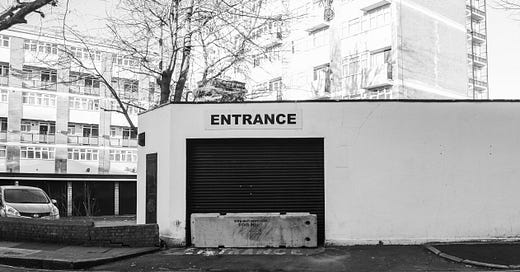



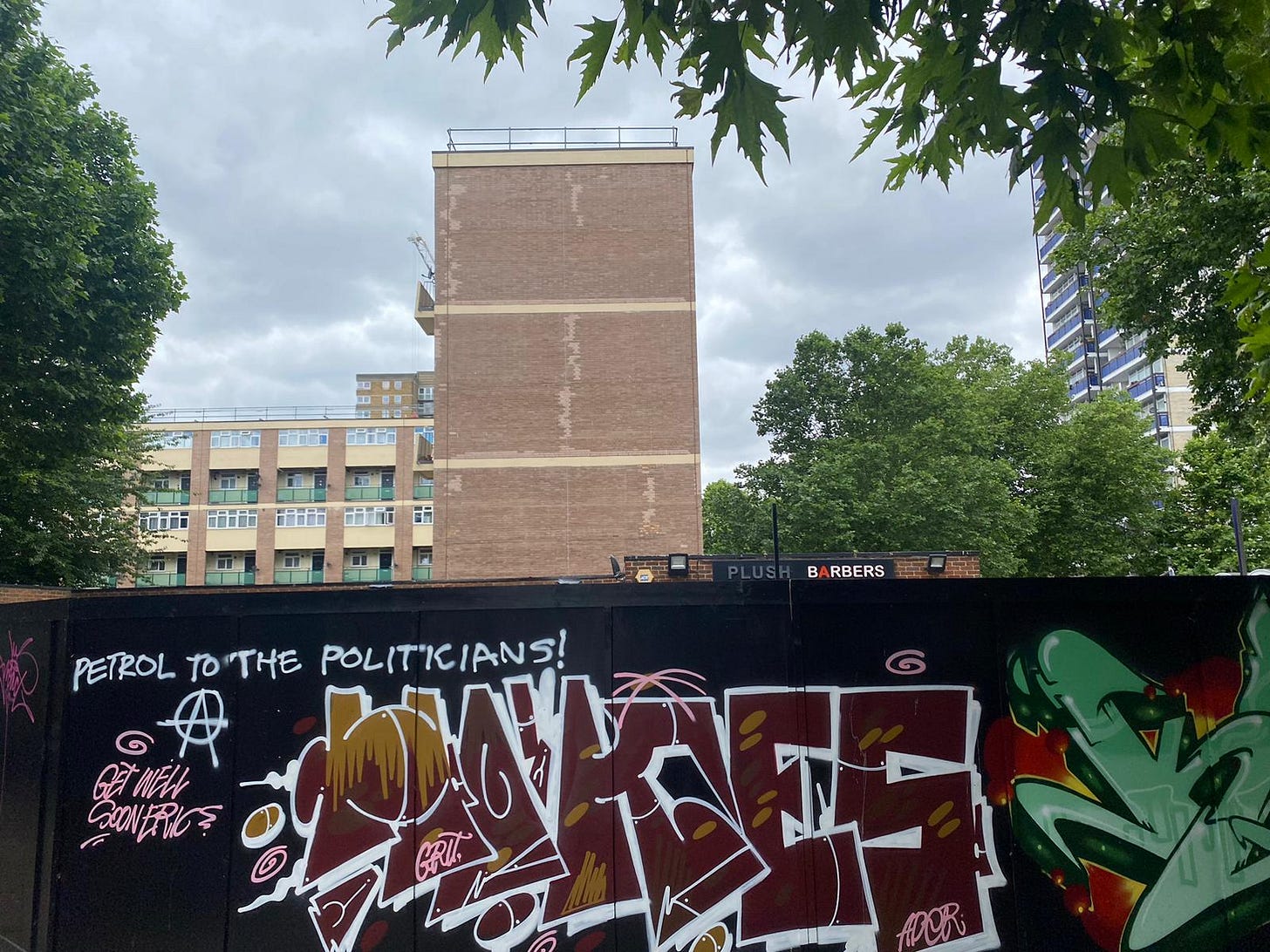

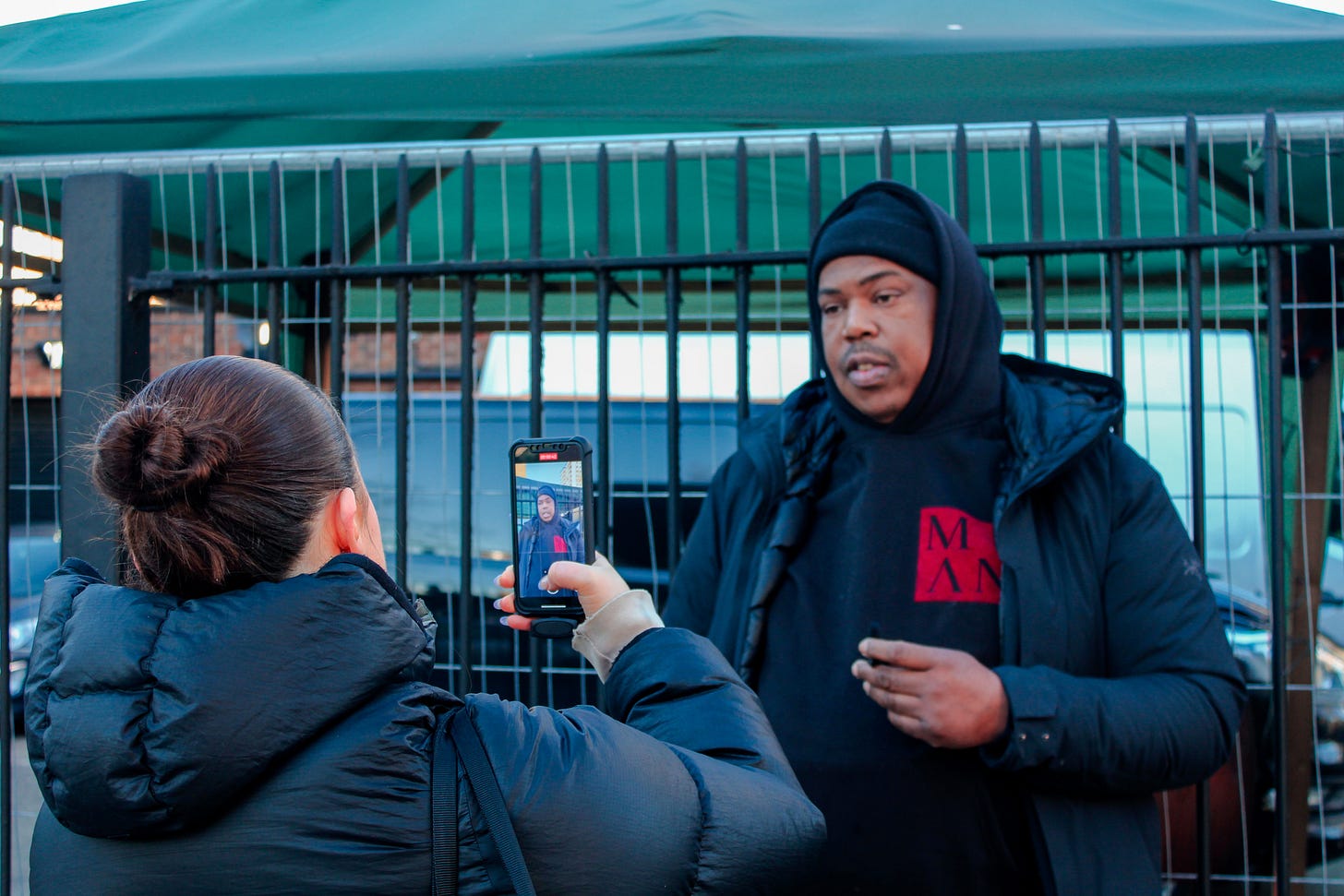
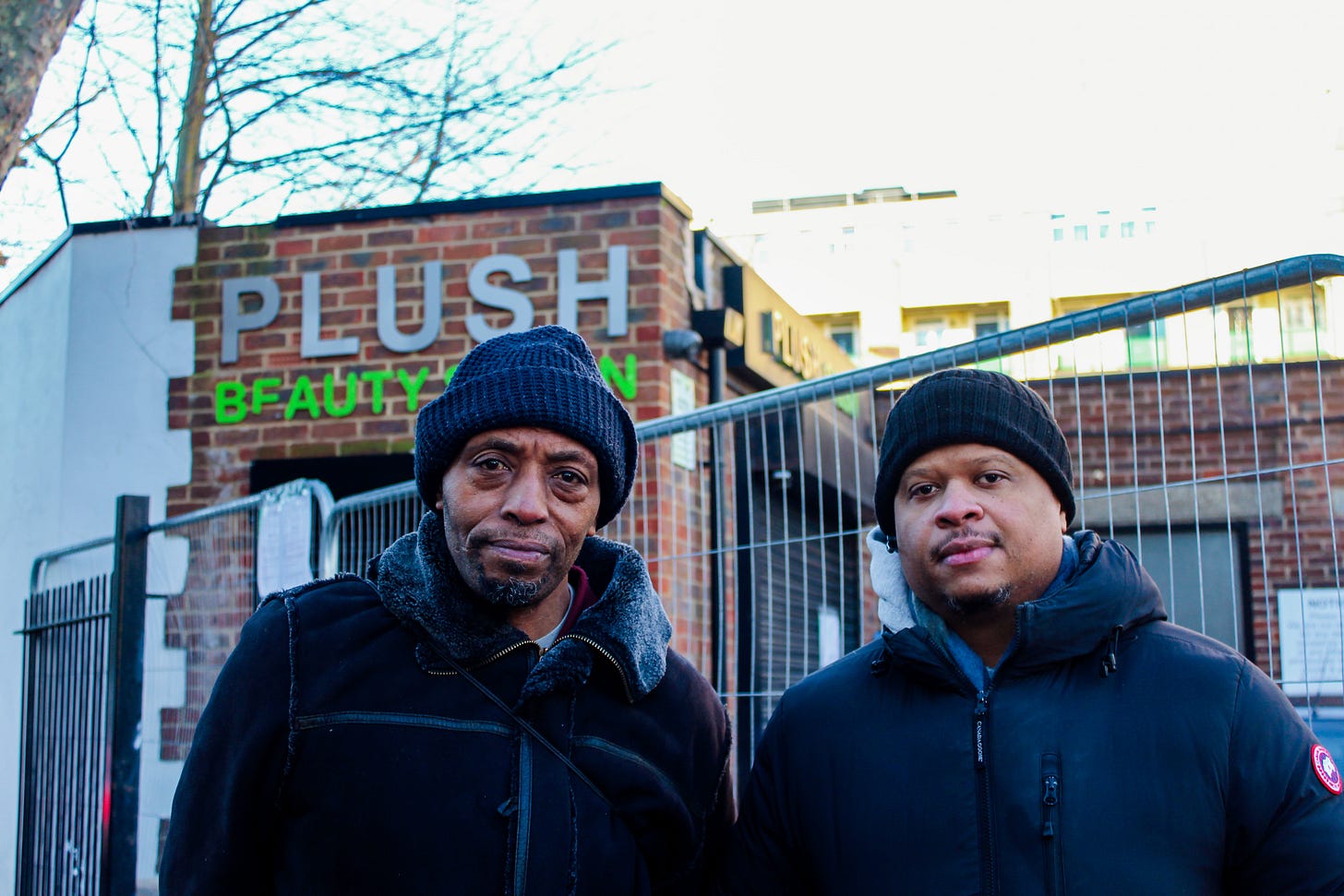
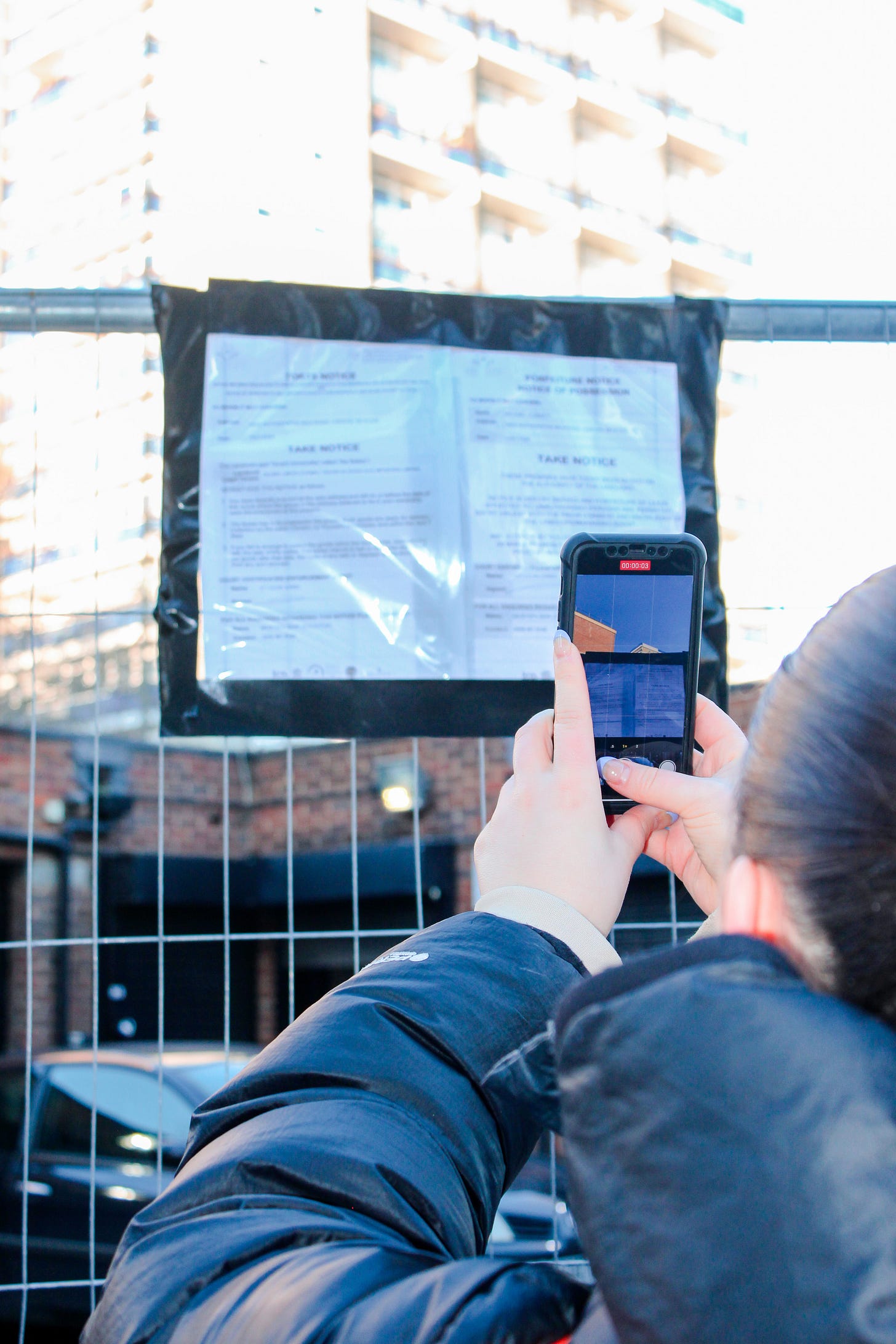
This is an excellent piece with great reporting. How can we help? Is there a link to donate to a local action group?